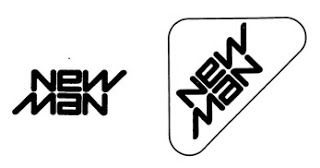After its 2010 acquisition of four NEW MAN (stylized) registrations for clothing, and securing a registration on its own in 2013, Respondent did not put the marks into use until 2016, and then only on a minimal basis. Nonetheless, Respondent convinced the Board that it had no intent not to resume use of the marks, and furthermore that its post-2016 sales sufficed to avoid abandonment. Garan Services Corp. v. Newman and Belle Etoile, Cancellations Nos. 92059231, 92059244, 92059248, 92059249, and 92059393 (September 14, 2018) [not precedential] (Opinion by Judge Francie R. Gorowitz).

The Assigned Marks: The marks covered by the first four registrations were not in use when respondent acquired them in 2010. (Petitioner did not claim that Respondent's predecessor-in-interest had abandoned the marks. If that were true, it would have invalidated the transfer to Respondent.) There was no evidence that Respondent used any of the five marks prior to 2016.
Under Section 45, a mark is abandoned "[w]hen its use has been discontinued with intent not to resume such use." Nonuse for 3 consecutive years constitutes a prima facie case of abandonment. Therefore, as to the four assigned marks petitioner met its burden to establish a prima facie case, and the burden of proof shifted to respondent. The ultimate burden of persuasion, however, remained on petitioner.
Respondent may overcome petitioner's prima facie case by showing that its nonuse was excusable, i.e., that it took steps "that a reasonable business with a bona fide intent to use the mark in U.S. commerce would have undertaken." The registrant must prove that it had a plan to resume use within a "reasonably forseeable future."
Respondent's managing director declared that the company was actively searching for US trade partners at professional trade shows, and it hired a US based consultant to analyze the market. In November 2012, Respondent was forced to postpone its plans due to financial difficulties. It informed the consultant that "it is reasonable and already very ambitious to aim for PE 2014. That postpones our project, without placing it into question but giving us more opportunities to succeed." Discussions with the consultant continued in 2013, and from October 2015 until February 2016, respondent was involved in advanced negotiations to sell NEW MAN brand goods at retail in the USA. Those negotiations stalled due to the institution of the subject cancellation proceedings.
Use in 2016:
Respondent began use of the mark in January 2016 and shipped goods to a New York City boutique (Les Canebier) in March 2016. Petitioner argued that these sales were minimal: "These sales were not a bona fide use made in the ordinary course of trade. They were just a feeble attempt to avoid losing right to the NEW MAN marks." The Board sided with respondent:
Therefore the Board found that respondent did not abandon its rights in the four assigned marks.
The Fifth Mark: The fifth registration issued in 2013. Respondent shipped goods in January 2016, one month before the three-year presumption date. "Since use was made within three years of the date of registration, Petitioner did not make a prima facie case of abandonment with respect to the mark and goods in Registration No. 4284412."
Conclusion: The Board dismissed the petitions
for cancellation (except for certain goods that respondent had
deleted when it renewed three of the registrations).
The content of this article is intended to provide a general guide to the subject matter. Specialist advice should be sought about your specific circumstances.
